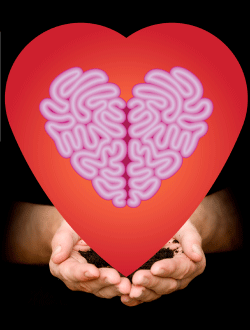
An Evening With Sarah Peyton
FREE
The everyday choices you make as a caregiver can have a profound effect on a child’s resiliency. With support, shy children become more outgoing, risk-takers become more capable of thoughtfulness, and anxious children become calmer. The manner in which we treat our children, play with them, and listen to them can actually change a child's genome. Our children's capacity to manage emotions, build self-esteem, empowerment and compassion, handle stress and conflict, and create healthy relationships is influenced by the quality and consistency of the care they receive.
Sarah will be discussing:
- Why empathy makes children more secure.
- What is most supportive for our children when they are physically or emotionally hurt.
- What can be traumatic for our kids without us even knowing about it.
- How trauma is stored in the brain.
- How resonance resolves and prevents trauma.
- The benefits of a resonant response.
Sarah's talk will be followed by a question and answer session.
"When people change the way they speak to themselves, they change the way their brain works. Language is a starting point for the movement toward warmth for the self, and…. We will be building an understanding of how to use language in ways that are supportive of brain integration. These are called resonance skills. When people let go of comparing and criticizing themselves and move toward warm self-understanding to care for themselves, they are moving toward brain health.”
-From Your Resonant Self by Saray Peyton
Speaker
Sarah Peyton: www.empathybrain.com

Sarah Peyton, Certified Trainer of Nonviolent Communication, teaches people how language changes relationship and the brain. She works with audiences internationally to create a compassionate understanding of the effects of relational trauma on the brain, and writes about and teaches people how words change and heal us. Her special interest is the way that difficult events impact our automatic brain patterning, and how to transform our tendencies toward self-criticism into self-warmth. Her first book, “Your Resonant Self: Guided Meditations and Exercises to Engage Your Brain’s Capacity for Healing,” was published by W.W. Norton Publishing internationally in autumn 2017.
Questions?
For more information about the program or to reserve you space, email David Steele using the form below or call him at 303.596.6063.